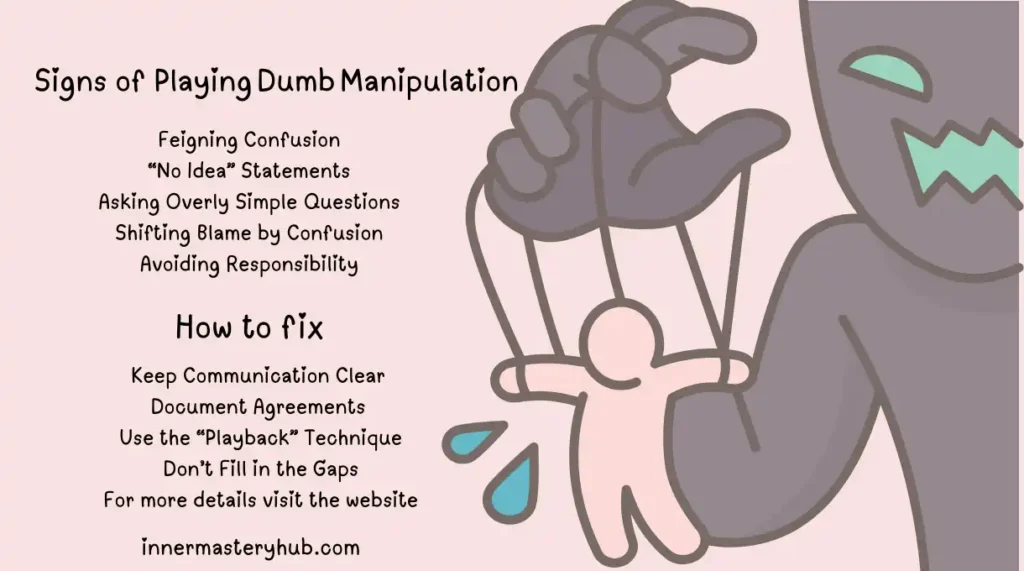Does Life Get Better? How Small Changes Lead to Big Results

Doesn’t life sometimes feel overwhelming? You face obstacles and strive to make things work as you go about your everyday business, but it frequently seems like nothing changes.
“Does life get better?” is a question you may ask yourself. Many of us have asked ourselves this question at various times throughout our lives. It’s likely that if you’re reading this, you’re wondering if there’s more to life or if things will get better.
I have been there. Unable to decide what to do next and feeling trapped. The truth is, though, that things do improve in life—just not in the manner we anticipate. It’s not about quick fixes or overnight transformations. It involves making little adjustments daily, adopting fresh viewpoints, and maintaining continuous work.
Life Feels Like It’s Going Nowhere
It’s possible that you’re in a rut and constantly doubt your goals or current course. Whether it’s your finances, relationships, career, or health, it can sometimes feel like nothing is moving forward. You feel like you’re working hard, but you’re not seeing the desired results. Have you ever been stuck trying to figure out why things in your life don’t seem to get better?
Seeing slow progress might be discouraging. While others’ personal lives, relationships, and jobs are blossoming, you find yourself wondering why things aren’t improving for you. You feel as though the world is moving while you remain motionless.
The Weight of Uncertainty
The majority of us face this issue: we want change, but we don’t know how to achieve it. When nothing seems to be going your way, it’s tempting to lose hope. You may have thoughts that go something like, “Am I not good enough? Is it my fault? And it just makes you feel worse.
As time passes, you start to wonder if things actually get better. With this uncertainty comes a certain amount of anxiousness. The burden of questioning if you’re headed in the correct direction can be mentally taxing. You may even begin to believe that perhaps this is the way life is for certain people—trapped in a cycle with no way out.
However, you must understand that feeling trapped does not define your identity or abilities. It’s merely a step in the procedure. You’re not the only one who experiences it.

Life does Get Better With Change and Perspective.
So, does life get better? The answer is yes, but not because you’ll suddenly wake up in a completely different situation. Life does get better when you start embracing change, shifting your perspective, and taking small actions toward improvement.
1. Focus on What You Can Control
The first step to making your life better is acknowledging that you have no control over everything. All the outside influences that seem to be beyond your control might quickly overwhelm you.
Everything seems so vast and overwhelming: the job market, family expectations, and the global situation. However, the reality is that you have no real control over anything except yourself.
Own your thoughts, behaviors, and emotions. It’s about altering your mindset and approach, not waiting for something outside of yourself to change. For instance, instead of worrying about a job you don’t like, start looking for new options or concentrate on methods to develop your talents. Instead of placing the blame for your difficulties on other people, take charge of your own happiness.
2. Embrace Small Changes for Big Results
You don’t have to overhaul your life to achieve complete improvement. Eventually, a better life is the result of tiny, steady changes. According to research, small routines can have a significant impact if followed regularly.
Use exercise as an example. You don’t need to commit to a two-hour fitness regimen all at once. Ten minutes a day is a good starting point, and it will eventually become a habit. A sense of accomplishment, improved attitude, and more energy might result from that minor adjustment.
The concept of minor adjustments applies to many aspects of life. Do you want to boost your income? Set aside a tiny portion of your monthly salary to begin. Are you looking to strengthen your bonds with others? Spend a few minutes every day communicating with a loved one, making small, intentional changes instead of waiting for a big event to improve your life.
3. Change Your Perspective
Your perspective on it directly influences your experience of life. Because we tend to focus on the negative, life appears worse than it actually is. Negativity bias refers to the psychological tendency to assign greater weight to negative experiences than to positive ones. A simple change in viewpoint can have a profound impact.
Consider a setback, for instance, as a teaching moment rather than a failure. A challenging circumstance should be viewed as an opportunity for personal growth rather than a burden. It involves changing your perspective to one of possibilities rather than lack.
4. Build Resilience Over Time
Resilience is the capacity to recover from failures. It is what enables individuals to endure hardships. The good news is that you can develop resilience over time; it’s not something you are born with.
Resilient people are better equipped to handle stress and adjust to life’s challenges, according to a study published in Frontiers in Psychology. Additionally, they are more likely to experience happiness and better mental health.
Being resilient entails embracing the fact that obstacles will always arise in life. You are not defined by those difficulties, though. The way you react to them is what makes you unique. Learning to confront hardship, get back up, and keep going is the foundation of resilience. Although it takes time, you can become stronger with each obstacle you encounter.
5. Pursue Meaning, Not Just Happiness
The idea that happiness should be the ultimate goal in life is a prevalent one. Although happiness is wonderful, pursuing it on its own might occasionally leave us feeling empty. Instead, concentrate on seeking significance. A deeper sense of fulfillment can be found in meaningful relationships, activities, and employment, rather than fleeting happiness.
According to research, individuals who find purpose in their lives tend to be happier and more resilient when faced with hardship. Focusing on what makes your life meaningful helps you navigate life’s ups and downs, making it feel more fulfilling.
6. Take Action, Even If It’s Small
Failing to take action is one of the reasons life feels unfulfilling. Although it’s simple to feel trapped in a pattern, even little steps can generate momentum. Establish modest, doable goals first. Small acts add up, whether it’s contacting a buddy you haven’t spoken to in a long time or reading a chapter of a book every day.
These behaviors accumulate and lead to noticeable changes in your life over time. It’s important to take small steps forward rather than making big changes all at once, and making your life better when you make even a small change in direction.
7. Seek Support When Needed
It’s okay to seek assistance. Sometimes, when you’re trying to manage everything by yourself, life doesn’t seem to be improving. The support of others, whether from friends, family, or a therapist, can have a profound impact. A support network provides encouragement, perspective, and a sense of community.
According to studies, having close social ties is associated with longer life spans and improved mental health. So, when you need assistance, don’t be afraid to ask for it. Support exists whether you’re seeking guidance, inspiration, or simply someone to listen.
Does Life Get Better?
Does a better life come? Indeed, it does. Not through some instantaneous, magical change, though. Focusing on minor adjustments, changing your perspective, developing resilience, and acting consistently can all lead to a better life. The key is to take charge of what you can and let go of what you can’t.
Thus, make the initial move. Remember that life’s path is about progress, not perfection. Start small, and practice self-compassion. Not only does waiting make life better, but living intentionally and accepting change also make life better.
Frequently Asked Relevant Questions about ” Does life get better?”.
Does life get better with age?
Indeed, when people mature, gain experience, grow from their mistakes, and find their purpose in life, things can improve. An increased sense of contentment and happiness is often the result of older people’s deeper grasp of what really matters.
Does life get better with a positive attitude?
Maintaining an optimistic outlook can have a significant impact on how you perceive obstacles and navigate life. By lowering stress, boosting resilience, and creating new chances, optimism makes life seem more fulfilling and pleasurable.
Does life get better after a breakup?
After a breakup, life can indeed improve. Although it takes time, you gain important insights when you reflect on your experiences. Your life becomes more satisfying when you eventually develop self-awareness, emotional maturity, and clarity on your true desires.
Does life get better with self-care?
Does life get better with self-care?
Yes, self-care is essential to living a better life. Stress is decreased, energy levels are raised, and emotional well-being is improved when mental and physical health are prioritized. Exercise, mindfulness, and getting enough sleep are simple yet effective habits that can significantly improve one’s overall quality of life.
Does life get better after college?
Yes, after college, people’s lives usually improve as they enter the workforce, become financially independent, and forge closer bonds with one another. This stage gives greater independence, possibilities for self-discovery, and the chance to create the future you want, despite potential obstacles.
Does life get better after a job change?
New challenges and a fresh start can arise from changing occupations, promoting both professional and personal growth. A new job can significantly enhance your career trajectory, work-life balance, and overall satisfaction if it aligns with your values and aspirations.
Does life get better after moving to a new city?
Indeed, relocating to a different place might present exciting opportunities. New settings offer more employment opportunities, personal development, and the creation of new social networks. Even if the adjustment could take some time, it’s an opportunity for growth and progress.
Does life get better with financial stability?
A financially stable life can be less stressful and more secure. With less financial stress, you have more time for travel, adventures, and personal development, all of which improve your mental and emotional health.
Does life get better with meaningful relationships?
Indeed, deep connections make your life better. Emotional support, overcoming obstacles, and happiness are all enhanced by having healthy relationships with friends, family, and partners. Good relationships are essential to a happy and balanced existence because they create a sense of belonging.
Does life get better when you take risks?
Taking chances can pay you handsomely. Stepping outside of your comfort zone can lead to intriguing opportunities, new experiences, and increased confidence. Even while risks are unpredictable, they often lead to increased life satisfaction and personal growth.






